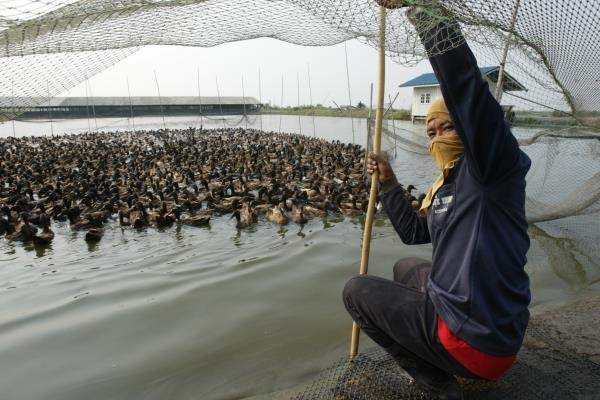
24 May 2016, Istanbul - Building resilience is crucial to enable fragile communities, especially in rural areas, cope with the increasing frequency and magnitude of natural disasters and the growing threat of pandemic diseases, FAO Director-General José Graziano da Silva today told participants at the World Humanitarian Summit.
"We need to be prepared: with climate change, extreme weather events will happen more often and with greater intensity," he said.
In developing countries, the agriculture sectors absorb around one quarter of damages and losses caused by climate-related events with around 2.5 billion smallholders particularly at risk, Graziano da Silva noted.
Similarly, emerging or re-emerging disease threats are arising due to globalization, demographic growth, climate and land use change, as well an intensification of agricultural activity, he added.
"Agriculture, forestry and fisheries have a key role to play in changing the way we manage risk and crises. They are central to ensuring food security and nutrition in the face of climate change," Graziano da Silva said.
Social protection
In already volatile situations, extreme weather events put lives and livelihoods at greater risk and one "fundamental commitment" to address this is using social protection policies, the FAO Director-General noted.
FAO is a member of the Social Protection Inter-Agency Coordination Board, which is calling for prioritizing investments in prevention and resilience; building on humanitarian response mechanisms to leverage investments in nascent safety nets; and enhancing the response capacity of national and subnational actors.
Strengthening veterinary systems
Graziano da Silva also noted that some 60 percent of the new human pathogens, such as Ebola, SARS, Avian Influenza, Middle East Respiratory Syndrome, have animal origins. Prevention, detection and response at their animal source is the only way these threats can be managed and controlled before they become epidemics or cause starvation and economic crises.
"But it requires access to affordable tools, vaccines and treatments, and more investment in early warning and early action to prevent disasters," he said, adding:"This is why strengthening veterinary systems is paramount to safeguarding human health, yet investment in this sector is weak".
He noted that FAO with the World Organisation for Animal Health, the World Health Organization and other partners is fully committed to the "One Health" approach that links animal and human health.
Concerted global efforts in health protection, with an emphasis on integrated and multidisciplinary approaches to health risk management are needed, Graziano da Silva said, stressing the need for vigilance.
He cited how coordinated international efforts helped many countries eliminate the H5N1 avian influenza virus from poultry, but that in 2014/2015 the disease made a comeback including re-entry into West Africa. This once again saw FAO and its partners at the forefront of combating this persistent disease.